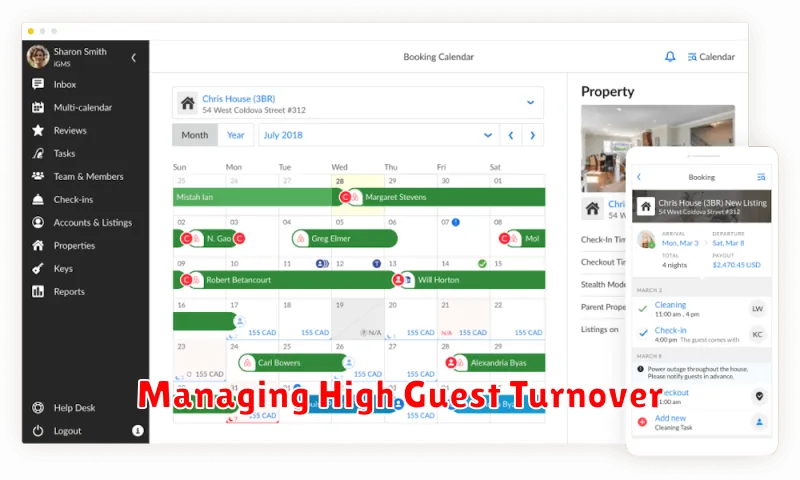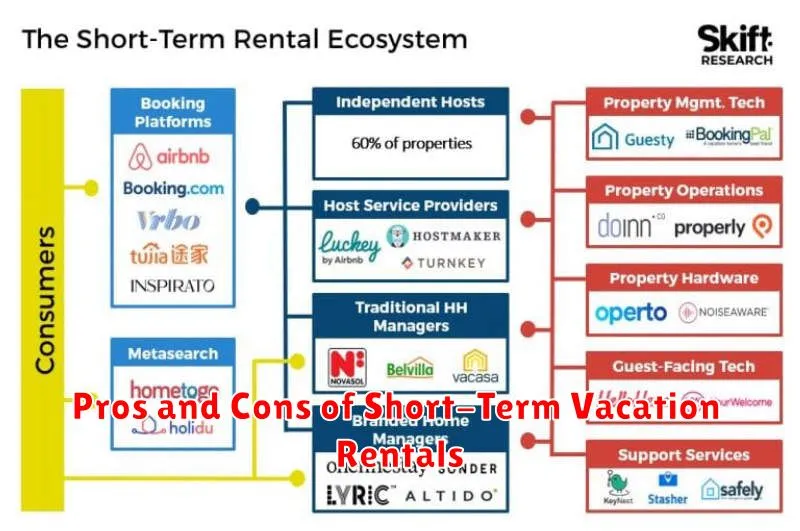The rise of platforms like Airbnb and VRBO has made short-term vacation rentals an increasingly popular alternative to traditional hotels. Whether you’re a homeowner considering listing your property or a traveler weighing your accommodation options, understanding the pros and cons of short-term vacation rentals is crucial. This article will delve into the advantages and disadvantages of short-term rentals, examining factors such as cost, amenities, regulations, and guest experiences to help you make informed decisions.
From the allure of unique accommodations and home-like amenities to concerns about neighborhood impact and regulatory complexities, the short-term rental landscape presents both opportunities and challenges. We’ll explore the benefits and drawbacks for both hosts and guests, providing a balanced perspective on this dynamic segment of the hospitality industry. Join us as we navigate the pros and cons of short-term vacation rentals to equip you with the knowledge you need to make the best choices for your travel or investment needs.
Benefits of Short-Term Rentals
Short-term rentals offer several compelling advantages for travelers. Cost-effectiveness can be a significant benefit, especially for families or larger groups, as renting a house or apartment often proves cheaper than booking multiple hotel rooms.
Amenities are another major draw. Rentals frequently provide kitchens, laundry facilities, and multiple bedrooms, offering a level of comfort and convenience hotels may lack. This is particularly appealing for longer stays.
Privacy is a key factor for many. Enjoying a private space without shared hallways and hotel lobbies can create a more relaxing and personalized vacation experience. This added privacy also allows for greater flexibility and control over your environment.
Challenges Owners May Face
Managing a short-term vacation rental can present several challenges for owners. Property management requires significant time and effort, from handling bookings and guest communication to cleaning and maintenance.
Local regulations can also pose difficulties. Some areas have strict rules regarding short-term rentals, including licensing requirements and occupancy limits.
Maintaining consistent occupancy can be another hurdle. Income fluctuates depending on the season and competition, requiring owners to actively market their property.
Finally, dealing with problematic guests is a possibility. Damage to the property, excessive noise, or late check-outs can create stressful situations for owners.
Managing High Guest Turnover

One significant operational aspect of short-term vacation rentals is the high guest turnover. This requires diligent property management.
Frequent cleanings and inspections are essential between each guest stay to maintain cleanliness standards and identify any maintenance needs promptly. This can be time-consuming and costly.
Effective communication with guests is also crucial for smooth check-ins and check-outs, addressing queries, and providing local information. Utilizing automated systems can streamline some of these processes.
Navigating Local Regulations
One of the most critical aspects of operating a short-term vacation rental is understanding and complying with local regulations. These rules can vary significantly from city to city, even within the same state.
Regulations may cover aspects such as:
- Permits and Licensing: Many jurisdictions require specific permits or licenses to operate a short-term rental.
- Occupancy Limits: Restrictions on the number of guests allowed.
- Safety Requirements: Regulations regarding fire safety, smoke detectors, and other safety measures.
- Tax Collection: Requirements for collecting and remitting local taxes, such as occupancy or sales tax.
- Parking Restrictions: Rules regarding on-street parking or the availability of off-street parking.
Failure to comply with these regulations can result in hefty fines or even the shutdown of your rental operation. It is essential to thoroughly research the specific regulations in your area before listing your property.
Financial Considerations
Income Potential: Short-term rentals offer the potential for higher income compared to traditional long-term rentals. This can be especially true in popular tourist destinations or during peak seasons. However, income is not guaranteed and fluctuates based on factors like occupancy rates and market competition.
Expenses: Managing a short-term rental involves various expenses including cleaning fees, property management fees (if applicable), maintenance, utilities, and insurance. Accurately calculating these expenses is crucial for determining profitability.
Regulations and Taxes: Be aware of local regulations and tax obligations related to short-term rentals. These can include permits, licensing fees, and lodging taxes, which can impact your overall earnings.

